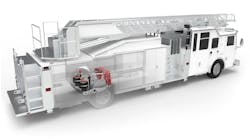Most new vehicles come with a manufacturer or dealer warranty. These warranties expire within a certain time period or at a certain mileage, whichever comes first. The length and amount of protection afforded by these warranties depends on the manufacturer and several other factors.
“Very few warranties offer true ‘bumper-to-bumper’ coverage, and all warranties have one thing in common: they eventually expire,” say officials with VehicleAssurance.com, an organization that helps handle unexpected automotive repair bills. “Vehicle service contracts provide the additional coverage your existing warranty doesn't cover, and protects your vehicle after the warranties expire for as long as you maintain the service contract.
“Vehicle service contracts provide coverage for repairs of covered components for the entire contract period or for a specific number of miles, at which time the service contract can be renewed for continued protection.”
COVERAGE
Brad Garrett, chief digital content officer for Endurance Warranty (www.EnduranceWarranty.com), a provider of vehicle service contracts in North America, says that a vehicle service contract is more of a protection plan for the customer that replaces a manufacturer’s warranty. “Most manufacturers only give drivers a few years of coverage, when the vehicle is new and least likely to break down. A vehicle service contract picks up where the manufacturer's warranty leaves off.”
When comparing an extended warranty, a mechanical breakdown policy and a vehicle service contract, Garrett says, these are synonyms to describe the same product. “Most commonly referred to as extended car warranties, these contracts or breakdown policies are not warranties. The reason we say this is because the only organization that can provide a warranty for a product is the manufacturer itself. This is why companies use so many different names for these protection plans.”
Garrett warns that even though these protection plans have a nearly unlimited list of items they will cover, not all policies are equal. An exclusionary policy, one that lists what is not covered, rather than what is covered, is very different from a powertrain plan. A powertrain plan, for example, which protects the most important and most expensive components of a vehicle, is the minimum level of coverage Endurance recommends. “Comparing coverage is key,” he adds.
In some cases, the manufacturer warranty and vehicle service contracts may overlap in terms of coverage. “While many drivers purchase a vehicle service contract after their manufacturer's warranty has expired, a good number choose to purchase a plan even if they still have coverage from the manufacturer remaining,” says Garret. “This is because their vehicle will qualify for a much lower rate and will ensure there is zero lapse in coverage.
“The unfortunate truth is that many people purchase coverage for their vehicle after the factory warranty has expired and something has broken down on their vehicle.”
DO YOUR RESEARCH
When shopping for a vehicle service contract provider, independent or third-party providers are the source of vehicle service contracts, says Endurance Warranty’s Garrett. While some manufacturers offer their own branded extended warranties, these are often administered by a third-party provider under the manufacturer brand. Auto dealers also receive the contracts that they sell with vehicles from third-party providers. Some providers sell directly to dealers, others sell directly to consumers.
Depending on whether the auto dealer, manufacturer or a third-party company is the vehicle service contract provider, where repairs can be made may vary. “Some dealership policies limit the driver to only having repairs performed at certified dealerships, in some cases the dealership where you purchased the vehicle must perform the repair,” he says. However, there are companies, like Endurance, that allow vehicle owners to take their vehicle to any certified mechanic or repair facility in the United States and Canada.
Another point to keep in mind for fleets looking to add vehicle service contracts is: Can these be transferred to a different owner or vehicle if you decide to sell it while still under warranty? Garrett says this is possible and very simple.
When transferring the contract to a new owner, only minor paperwork is required, he says. “Transferring coverage to a different vehicle is just as easy, but there may be a price difference between covering the old car, say a 2007 Honda Fit, to the new vehicle, say a 2016 BMW 3-series. In this case, the amount paid on the previous policy is pushed to the new one.”
Garrett says Endurance Warranty recommends that every vehicle has extended protection. “It just makes sense financially. Drivers file more claims for a vehicle service contract than they do with their collision insurance.
“Think about it, which is more likely: that you will get into a car accident or that your alternator or water pump will fail? Our advice would be: if you're covering collision insurance, you should be carrying a vehicle service contract.”
FURTHER GUIDANCE
Garret offers a few additional points of advice to keep in mind when shopping for a vehicle service contract:
- Be wary of policies that are priced too good to be true, they always are. These policies typically cover next to nothing and rarely pay for claims.
- Think about what you really need. Are you going to sell the car in a couple of years? Fleets can save some money by choosing a three-year policy instead of a seven-year policy.
Compare. There are a lot of options and companies out there. What's the company’s Better Business Bureau rating? Which insurance company is backing their contracts? If a business is no longer operating, they won't be paying claims.




